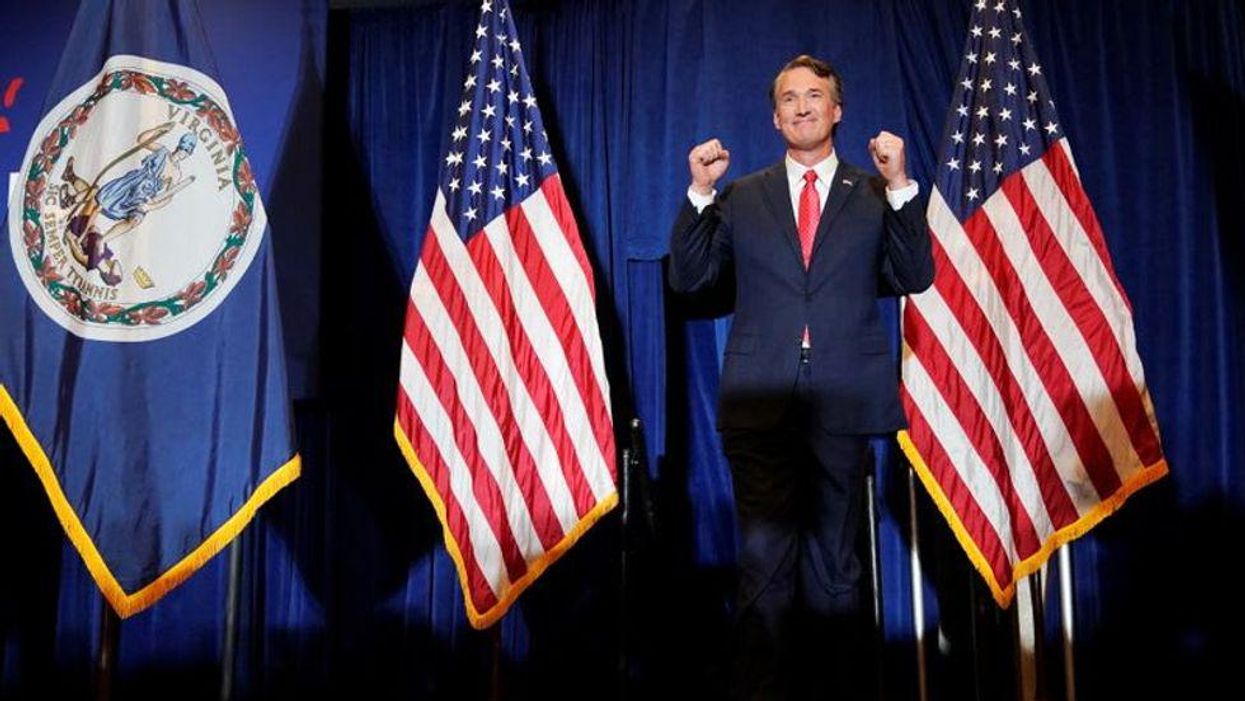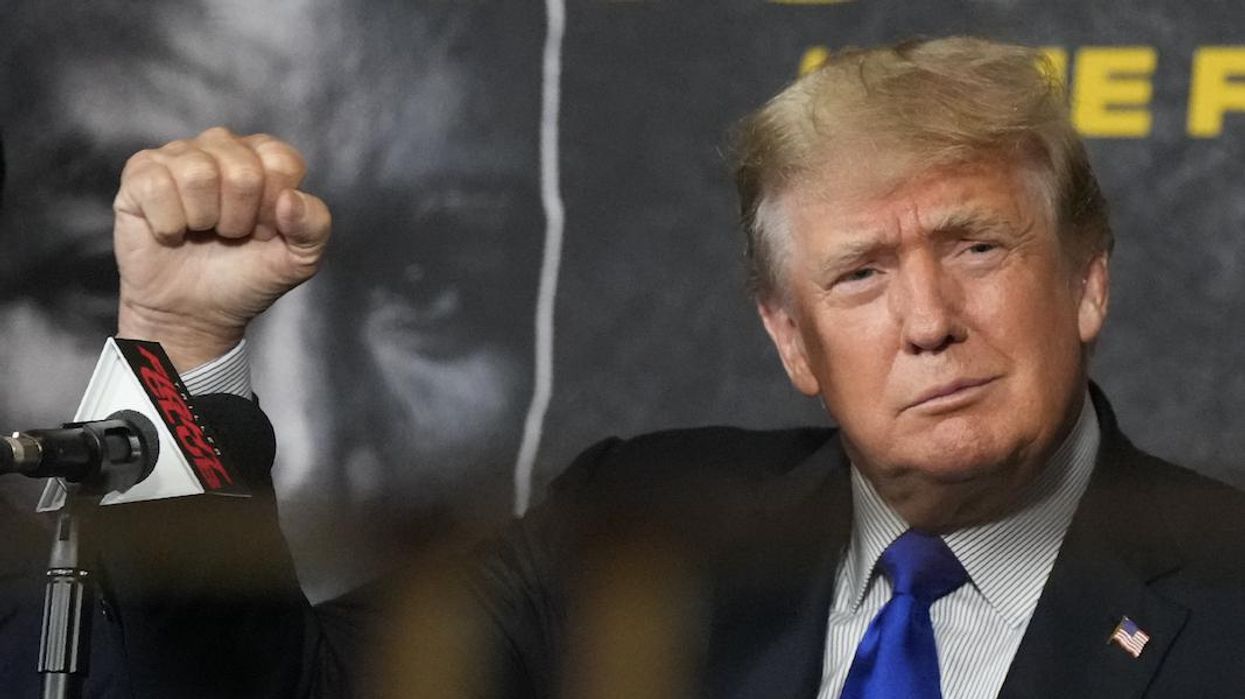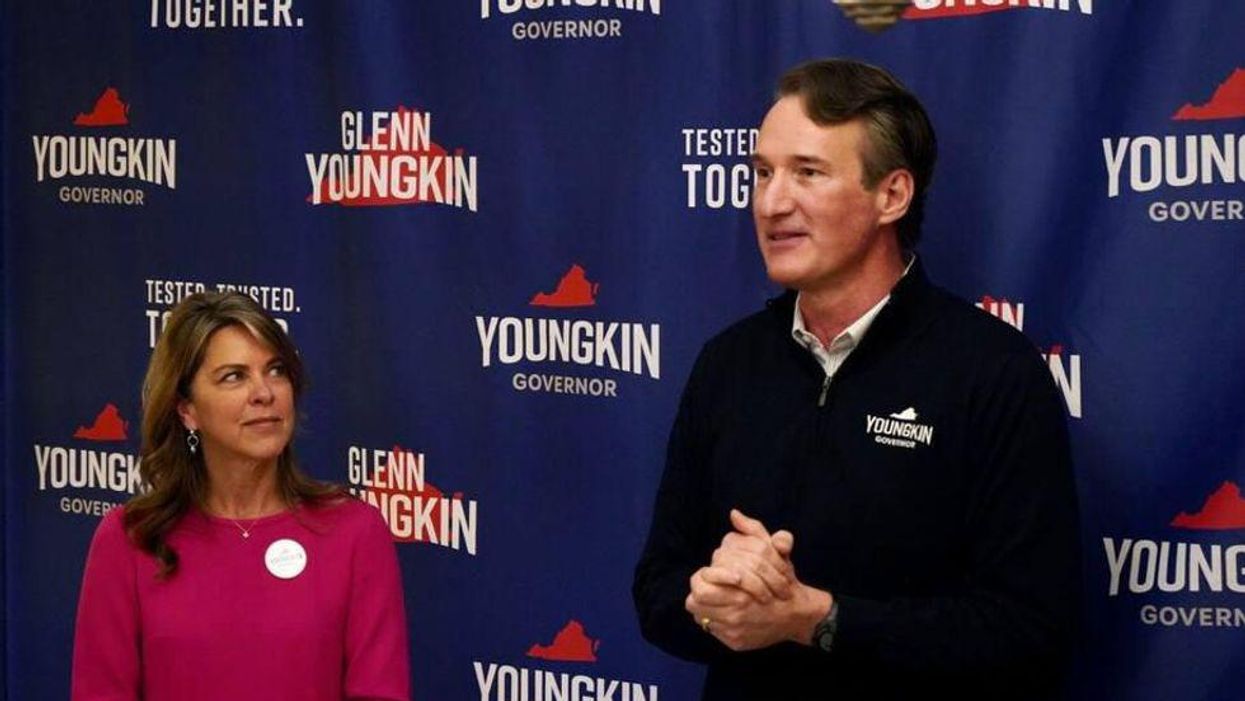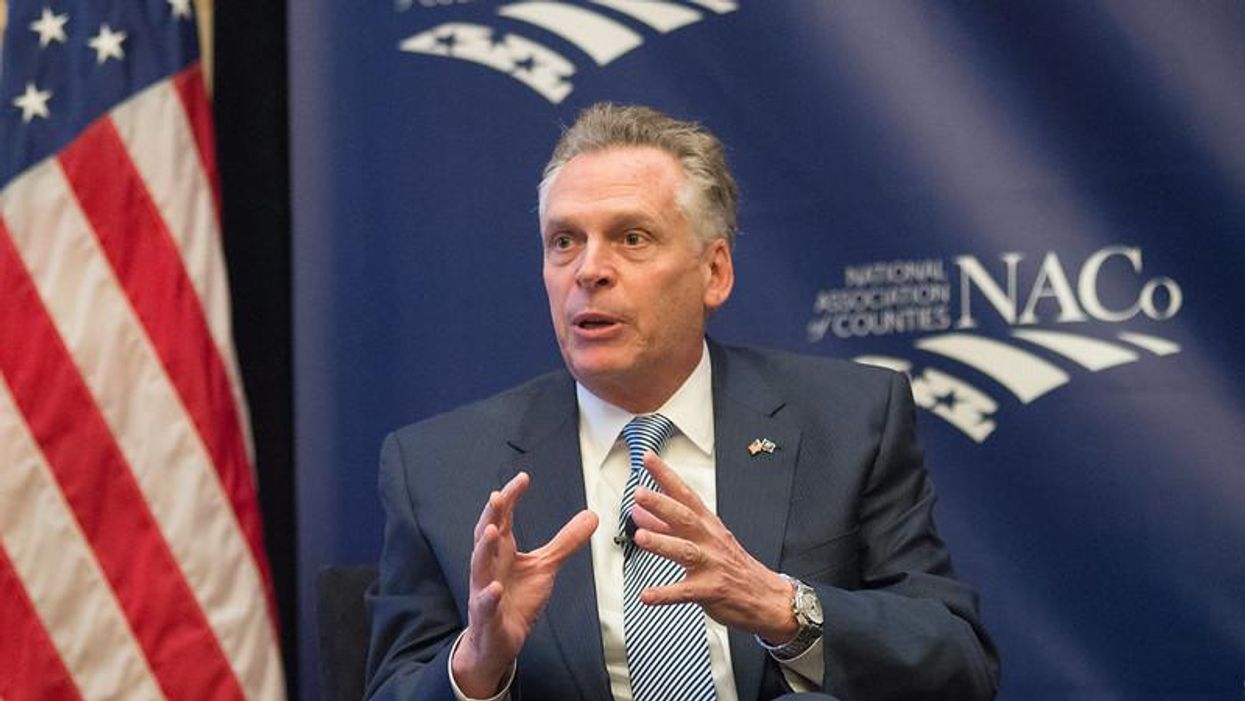Don't Get Too Excited About Virginia, Republicans
As a lifelong sports fan, it's been decades since I let a ballgame make me unhappy. Back when my sons would plunge into mourning over Razorback basketball losses, I'd remind them that somebody loses every game that's played. No point brooding; there will be another game soon.
I feel basically the same about off-year elections. A governor elected by a 51-48 margin, like both Virginia Republican Glenn Youngkin and New Jersey Democrat Phil Murphy, won't be able to alter the fundamentals of political life in those states—much less anywhere else.
To choose the most obvious example, Gov. Youngkin will find it easy to fulfill his biggest campaign promise: banning the teaching of Critical Race Theory in the Commonwealth. That's because nobody actually teaches it, giving GOP "cancel culture" a big head start. It's an obscure academic doctrine metamorphosed into a Fox News phantasm.
Former Democratic Gov. Terry McAuliffe's awkward statement that parents have no business dictating school curricula looks was an unforced error that may have determined the outcome. Many voters understood him to mean that parents should butt out altogether, a crucial mistake.
The whole episode couldn't help but summon memories of my young wife being summoned before a rural Virginia school board after teaching Steinbeck's Of Mice and Men to tenth graders. One parent found the phrase "blue ball" (describing a toy) to be sexually suggestive and demanded her firing.
The board exonerated her.
Meanwhile, I had done some substituting at the county's segregated black high school, with its worn, hand-me-down textbooks and rocks used as bases on the ball field. I wonder what Critical Race Theory would say about that?
Don't tell the children.
But I digress. McAuliffe's biggest blunder may have been running against the ghost of Donald Trump. A handsome suburbanite out of GOP central casting, Youngkin managed to hold Trumpist voters without alienating others—mainly by keeping the big blowhard out of Virginia and far from his campaign.
Otherwise, neither the Virginia nor New Jersey results did much to justify the melodramatic coverage—particularly on cable TV. Josh Marshall put things in perspective on his Talking Points Memo website:
"New Jersey's Murphy has won what the press portrays as a squeaker, almost illegitimate and certainly embarrassing, by a margin of 77,000 votes. The Great White Hope Glenn Youngkin, on the other hand, won his Virginia landslide victory of all victories by 79,000….
"We can add to this that Murphy is the first Democratic Governor of New Jersey to be reelected in 44 years. Meanwhile, going back 48 years the party which does not hold the presidency has won the Virginia's race all but one time. That was when Terry McAuliffe won in 2013."
In short, nothing fundamental has changed. The public nearly always turns against the party of an incumbent president during his first year, partly because the losers are more motivated. In 2009, after Barack Obama had defeated John McCain, Democrats lost both the New Jersey and Virginia governorships. The year after Trump defeated Hillary Clinton in 2016, Democrats won in both states. Pendulum swings are inevitable.
That's why the most intriguing reaction amid the hullabaloo on the network news programs was voiced by the far right Gateway Pundit website. Why did Virginia Democrats let Youngkin win?
See in Trumpist precincts — Gateway Pundit proprietor Jim Hoft was feted at Mar-a-Lago only last weekend — the "Big Steal" is an article of faith, although Republicans haven't won a presidential race in Virginia since 2008. Trump lost there in 2020 by 450,000 votes.
"So where were the magical votes this year?" Hoft demanded to know. "Was this omission on purpose?" Was this part of a larger psyop on the American public?...Throw in McAuliffe as a sacrificial lamb knowing they can steal any future election at will?"
Well, I certainly hope so.
Because by any rational standard, President Biden had a string of remarkable successes last week, although you sure couldn't tell from the media coverage. Never mind his successful appearance at the world climate summit in Glasgow. On Friday, Labor Department jobs report showed the U.S. economy taking off, with 530,000 new jobs created in October, and revised figures from September adding 235,000 more. Unemployment edged down to 4.6 percent while the stock market reached record highs.
Then on Friday night, the House finally passed the bipartisan $1.2 trillion infrastructure bill, the largest transportation initiative in U.S. history. Passage of Biden's $2 trillion "Build Back Better" plan appears all but assured.
Meanwhile, the Covid death rate shrinks and vaccinations of children have begun. Yet "Dems in Disarray," is the perennial theme Washington pundits have chosen, and they're not easily dissuaded. On her CNN program last Friday, the lovely and quick-witted Erin Burnett badgered and talked over guests who advised patience on the infrastructure bill.
Come Monday, she demanded to know why Biden hadn't signed it yet.












